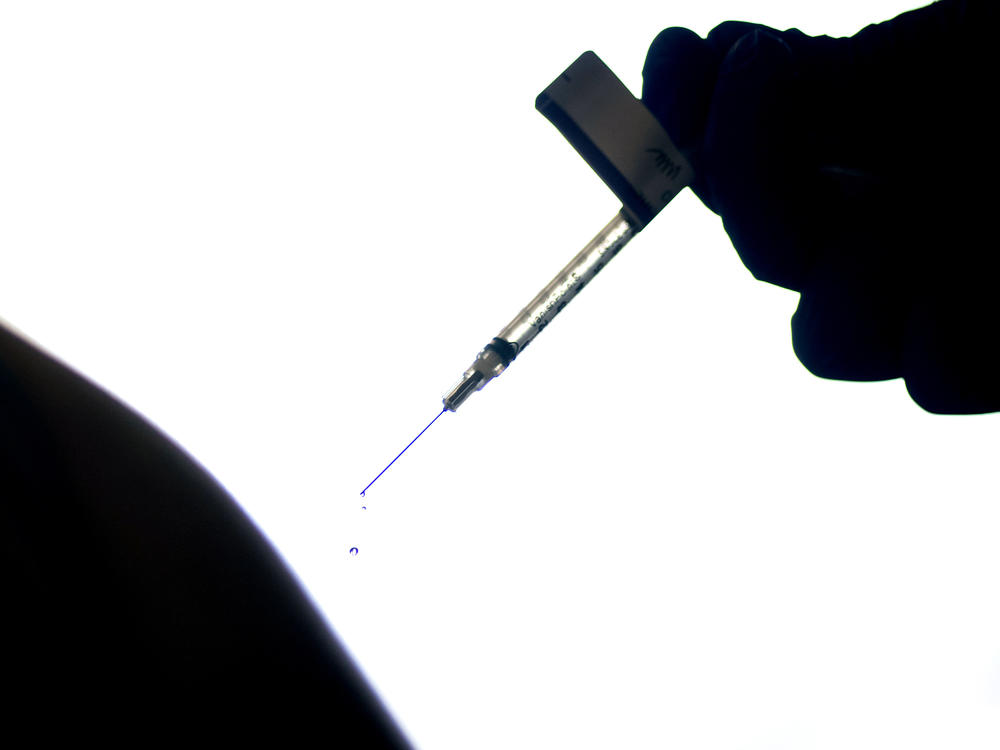GHSA 6A Boys Basketball Championships: Wheeler High School vs Newton High School starts at 7:30 p.m.
Section Branding
Header Content
California Will Require Vaccines For Workers In Health Care Facilities
Primary Content
California is implementing what it calls the "first in the nation" requirement that health care workers statewide be vaccinated against COVID-19.
The state is currently experiencing its fastest increase in coronavirus cases since the onset of the pandemic, with case rates "increasing ninefold in the last two months," according to the new order from the California Department of Public Health.
The CDPH wants to protect the state's vulnerable populations and to keep health care facilities operating steadily across the state. Under the order, which was announced Thursday and took effect the same day, paid and unpaid workers in health care facilities have until Sept. 30 to be fully vaccinated. The order applies to those who provide services or work in hospitals, nursing facilities, psychiatric hospitals, clinics and doctor's offices. It also includes dialysis centers and residential substance use treatment centers and at least a half-dozen other facilities.
Oregon Gov. Kate Brown announced this week that she plans to implement a similar measure. "Brown announced Wednesday she's directed the Oregon Health Authority to create new rules designed to apply pressure on health care workers. They can either get vaccinated by Sept. 30 or face frequent tests for the virus," member station Oregon Public Broadcasting reported.
In California, 63% of residents 12 years or older have been fully vaccinated and another 10% have had at least one dose as of Thursday, the CDPH said. But the rapid rise of the delta variant is troubling state health officials.
"Increasing numbers of health care workers are among the new positive cases, despite vaccinations being prioritized for this group when vaccines initially became available," the CDPH said. "Recent outbreaks in health care settings have frequently been traced to unvaccinated staff members."
Exceptions: religious beliefs or a qualified medical condition
Facilities requiring vaccination will have to verify the status of their staff and have a plan for monitoring who has and has not gotten jabbed. Proof of vaccination can come in the form of a COVID-19 vaccine record card, health care documents or digital records accessible by a QR code or from documentation from another employer requiring vaccination. If a person can't prove they've gotten a full dose, facilities will have to assume they're unvaccinated.
There are, however, two exceptions: religious beliefs or a qualified medical condition. Staff who refuse to get the vaccine based on either will be excused. Those pursuing the medical exemption don't need to disclose their condition but do need to provide a written statement by a medical professional attesting to their inability to receive the vaccine and for how long. Unvaccinated workers will have to be tested for COVID-19 as often as twice a week and must wear a respirator or surgical mask at all times while at work.
California Gov. Gavin Newsom announced the order over Twitter on Thursday. Some people cheered the news, while others wondered what would happen if enough staff refused to take the shot and instead chose to walk out.
More than 150 employees quit or were fired from their jobs at a Houston hospital system after being presented with a similar ultimatum. And the nation is already facing a health care worker crisis. A Kaiser Family Foundation study found that 3 in 10 medical professionals are considering leaving their jobs because of pandemic burnout.
Even as California's mandate took effect, some states are doing everything in their power to prevent vaccine requirements and have passed legislation outlawing mandates.
The U.S. is seeing more than 90,000 new infections per day, the highest daily rate since mid-February. With delta on the rise, the Centers for Disease Control and Prevention is forecasting as many as 9,100 new coronavirus deaths by late August.
Copyright 2021 NPR. To see more, visit https://www.npr.org.
Bottom Content

